A Devex event co-hosted by the World Economic Forum
Bounce Back:
Investing in Resilient Societies
January 28, 2021
11 a.m. ET | 5 p.m. CET
RegisterAbout the Event
The COVID-19 pandemic proved existing systems and resources were woefully ill-prepared and insufficient to protect communities and markets from health, socio-economic and political shocks. The pandemic accelerated the fragility of local systems and underlined the importance of long-term resilience building. Any proposed solutions must include the world’s most vulnerable populations living in low-income and/or conflict-affected contexts.
On Thursday, Jan. 28, 2021, Devex and the World Economic Forum co-hosted an online event, Bounce back: Investing in resilient societies. Together, we highlighted how governments, investors, humanitarian and development actors can work together to unlock resources and build partnerships to support long-term resilience.
Schedule
11:00 a.m. ET
Opening remarks
11:05 a.m. ET
Panel discussion
12:00 p.m. ET
Closing remarks by Raj Kumar
Speakers
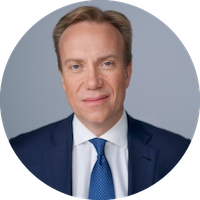
Borge Brende
President, World Economic Forum
Børge Brende is the President of the World Economic Forum and former Minister of Foreign Affairs of Norway (2013-2017). Before becoming FM he was a managing director at the World Economic Forum in Geneva.
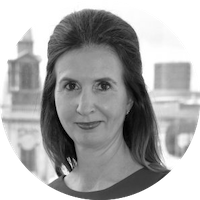
Katherine Garrett Cox
Managing Director and CEO of Managing Director and Chief Executive Officer of Gulf International Bank (UK) Limited (GIB UK)
Katherine is Chief Executive Officer of Gulf International Bank (UK), established in 1975 and focusing on client-related activities in asset management, treasury and structured finance. Katherine has over 27 years of investing experience in the global asset management industry and has had responsibility for managing institutional and retail funds, both within the UK and internationally, across a broad range of investment disciplines. Most recently, she was the Chief Investment Officer and Chief Executive Officer of Alliance Trust PLC, where her responsibilities included oversight of the entire business, asset allocation and the development of the asset management subsidiary.
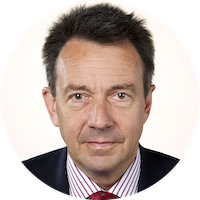
Peter Maurer
President, International Committee of the Red Cross (ICRC)
Peter Maurer is the President of the International Committee of the Red Cross (appointed in 2012). Under his leadership, the ICRC carries out humanitarian work in over 80 countries. As President, Mr Maurer has a unique exposure to today's main armed conflicts and the challenges of assisting and protecting people in need. He travels regularly to the major conflict theatres of the world including Syria, Iraq, Yemen, South Sudan and Myanmar. As the ICRC’s chief diplomat, and through the ICRC’s principled, neutral approach, Mr Maurer regularly meets with heads of states and other high-level officials as well as parties to conflict, to find solutions to pressing humanitarian concerns.
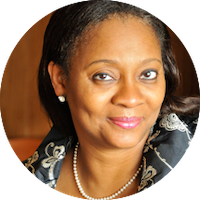
Arunma Oteh
Academic Scholar, Oxford University; former Vice President and Treasurer, World Bank
Ms. Arunma Oteh has been an Academic Scholar at University of Oxford, since January 2019. She is also a member of the London Stock Exchange Africa Advisory Group. She was previously the Treasurer of the World Bank, Director General, Securities and Exchange Commission Nigeria, as well as Group Vice President, Corporate Services and Group Treasurer, African Development Bank. She started her career in 1985, at Centre Point Investments Limited, Nigeria. Arunma holds an MBA(1990) from Harvard Business School and a BSc, First Class Honors from the University of Nigeria, Nsukka (1984). She has has served on several boards and received several awards notably Nigeria’s Officer of the Order of Niger (OON) National Honour. In 2018, she was honored as the Ai Global Institutional Investment Personality of the Year. She was named one of PowerList’s 2020 top 100 people of Black Heritage in the U.K. In March, 2020, she was also named one of Africa’s 50 most influential African women by Forbes Africa.
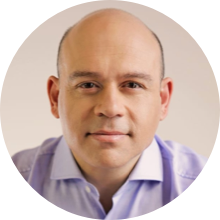
Raj Kumar
President & Editor-in-Chief, Devex
Raj Kumar is a media leader and former humanitarian council chair for the World Economic Forum and a member of the Council on Foreign Relations. He is the author of the book "The Business of Changing the World," a go-to primer on the ideas, people, and technology disrupting the aid industry.



